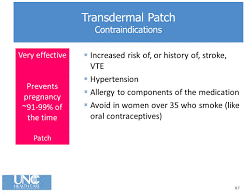A nurse working on a postpartum unit is collecting data from four clients. Which of the following findings should the nurse report to the provider?
A client who has a reddened area on their right calf
A client who reports painful uterine contractions during breastfeeding
A client who has a urinary output of 125 mL in 4 hr
A client who reports changing their perineal pad every 2 hr
The Correct Answer is C
A) Incorrect- A reddened area on the calf might indicate a potential blood clot (deep vein thrombosis), which is important to assess but may not be the highest priority.
B) Incorrect- Painful uterine contractions during breastfeeding can be a normal response due to oxytocin release during breastfeeding and might not require immediate reporting.
C) Correct - A urinary output of 125 mL in 4 hours is significantly low and could indicate inadequate fluid intake, potential urinary retention, or other issues that need prompt attention. It is a sign of impaired renal function. This could indicate dehydration, blood loss, infection, or kidney injury. The nurse should assess the client's fluid intake and output, vital signs, urine specific gravity, and serum electrolyte levels. The nurse should also monitor the client for signs of hypovolemia, such as tachycardia, hypotension, and decreased skin turgor.
D) Incorrect- Changing a perineal pad every 2 hours is within the normal range for postpartum bleeding and might not require immediate reporting.
Nursing Test Bank
Naxlex Comprehensive Predictor Exams
Related Questions
Correct Answer is C
Explanation
Rationale:
A) Incorrect - A blood pressure of 120/70 mm Hg is within the normal range and is not a contraindication for the transdermal contraceptive patch.
B) Incorrect - Peptic ulcer disease is not a contraindication for the transdermal contraceptive patch.
C) Correct - A weight of 98 kg (216 lb) is considered a contraindication for the transdermal contraceptive patch due to potential reduced efficacy in women with a body mass index (BMI) over 30. This method might be less effective for individuals with higher body weights.
D) Incorrect - A history of spontaneous abortion is not a contraindication for the transdermal contraceptive patch.

Correct Answer is C
Explanation
A) Incorrect- Elevated blood pressure is not a primary risk associated with hyperemesis gravidarum.
B) Incorrect- Leukopenia (low white blood cell count) is not a common consequence of hyperemesis gravidarum.
C) Correct - Hyperemesis gravidarum, severe nausea, and vomiting during pregnancy can lead to dehydration, which may affect amniotic fluid levels and result in hydramnios (excessive amniotic fluid).
D) Incorrect- Ketonuria (presence of ketones in the urine) is a possible consequence of excessive vomiting, but it's not the primary concern associated with hyperemesis gravidarum.
Whether you are a student looking to ace your exams or a practicing nurse seeking to enhance your expertise , our nursing education contents will empower you with the confidence and competence to make a difference in the lives of patients and become a respected leader in the healthcare field.
Visit Naxlex, invest in your future and unlock endless possibilities with our unparalleled nursing education contents today
Report Wrong Answer on the Current Question
Do you disagree with the answer? If yes, what is your expected answer? Explain.
Kindly be descriptive with the issue you are facing.
